John Stott’s Common Word
An event that tells us much about John Stott’s real agenda occurred in October 2007, when a large number of prominent Muslim clerics, scholars and intellectuals signed a letter calling for peace between Muslims and Christians. Entitled A Common Word between Us and You, the Muslim letter urged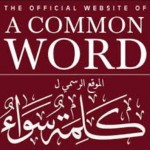 followers of the two faiths to find common ground between Christianity and Islam.[1] A Christian letter of response, entitled Loving God and Neighbor Together, drafted by Miroslav Volf and other scholars at Yale Divinity School’s Center for Faith and Culture, was signed by John Stott and about 300 other Christian leaders. The Christian response was featured as a full page advertisement in the New York Times in November 2007.[2]
followers of the two faiths to find common ground between Christianity and Islam.[1] A Christian letter of response, entitled Loving God and Neighbor Together, drafted by Miroslav Volf and other scholars at Yale Divinity School’s Center for Faith and Culture, was signed by John Stott and about 300 other Christian leaders. The Christian response was featured as a full page advertisement in the New York Times in November 2007.[2]
A Common Word Between Us and You
The unity of God is declared in the third section of A Common Word:
“What prefaces the Two Commandments in the Torah and the New Testament, and what they arise out of, is the Unity of God—that there is only one God… Thus the Unity of God, the love of Him, and the love of the neighbor form a common ground upon which Islam and Christianity (and Judaism) are founded.”
Muslims believe that God is one in an absolute sense. God is a solitary being. He exists alone, supremely and singularly divine. The Bible teaches that the One True God exists as three divine Persons—God the Father, God the Son and God the Holy Spirit. The Qur’an specifically rejects the biblical concept of the Holy Trinity. Therefore Christians and Muslims do not serve the same God.
A foundational verse from the Qur’an quoted in A Common Word is Aal ‘Imran 3:64, which reads as follows:
“Say: O People of the Scripture! Come to a common word between us and you: that we shall worship none but God, and that we shall ascribe no partner unto Him, and that none of us shall take others for lords beside God. And if they turn away, then say: Bear witness that we are they who have surrendered (unto Him).”
This verse, which is quoted repeatedly, gives the title of the Muslim document. Verses in the Qur’an present Islam as the only true monotheistic religion and condemns both Christianity and Judaism. The ‘People of the Book’ are encouraged to convert to Islam. Christians are being asked to accept: ‘we shall worship none but God, and that we shall ascribe no partner unto Him…’ Christians are called upon to reject God as having any partner or associate. The implication is a rejection of the triune nature of God as Father, Son and Holy Spirit. A Common Word wants Christians to accept the absolute unity of God/Allah. The phrase ‘ascribe no partner unto Him’ is used at least five times in the document.
Answering Islam website concludes:
‘The conclusion of the matter is certain. This “peace offer” comes at a high stake. These Muslim leaders are willing for us to dialogue with them, to come to a common word, with the following stipulations: 1)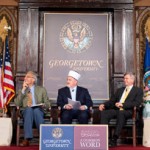 We must acknowledge that we Christians are worshipping the same God they are—that is, the God/Allah of the Qur’an; 2) In order to come together to love God and our neighbor it necessary to posit the Unity of God—which means a denial of the Triune nature of God; and 3) Our common agreement is based on a Muslim understanding of God’s nature as being a solitary being who “hath no associate” or “partner,” thus denying the true Deity of Christ.’
We must acknowledge that we Christians are worshipping the same God they are—that is, the God/Allah of the Qur’an; 2) In order to come together to love God and our neighbor it necessary to posit the Unity of God—which means a denial of the Triune nature of God; and 3) Our common agreement is based on a Muslim understanding of God’s nature as being a solitary being who “hath no associate” or “partner,” thus denying the true Deity of Christ.’
http://www.answering-islam.org/Authors/Deleon/who_you_gonna_serve.htm
Loving God and Neighbor Together:
A Christian Response to A Common Word Between Us and You
Below are extracts from the document, which can be found online, with comments in bold:
Preamble
As members of the worldwide Christian community, we were deeply encouraged and challenged by the recent historic open letter signed by 138 leading
Muslim scholars, clerics, and intellectuals from around the world. A Common Word Between Us and You identifies some core common ground between Christianity and Islam which lies at the heart of our respective faiths… We receive the open letter as a Muslim hand of conviviality and cooperation extended to Christians worldwide. In this response we extend our own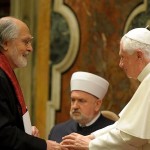 Christian hand in return, so that together with all other human beings we may live in peace and justice as we seek to love God and our neighbors.
Christian hand in return, so that together with all other human beings we may live in peace and justice as we seek to love God and our neighbors.
…Since Jesus Christ says, “First take the log out of your own eye, and then you will see clearly to take the speck out of your neighbor’s eye” (Matthew 7:5), we want to begin by acknowledging that in the past (e.g. in the Crusades) and in the present (e.g. in excesses of the “war on terror”) many Christians have been guilty of sinning against our Muslim neighbors. Before we “shake your hand” in responding to your letter, we ask forgiveness of the All-Merciful One and of the Muslim community around the world.
[The Christian letter asks for forgiveness of the All-Merciful One, who is Allah, the God of Islam. There is an acknowledgement that Christians have sinned against Muslims, and an acceptance that the All-Merciful One is able to forgive the sins committed by Christians. Note there is no mention of the sins that Muslims have committed against Western society].
Religious Peace-World Peace
…If we can achieve religious peace between these two religious communities, peace in the world will clearly be easier to attain. It is therefore no exaggeration to say, as you have in A Common Word Between Us and You, that “the future of the world depends on peace between Muslims and Christians.”
Common Ground
What is so extraordinary about A Common Word Between Us and You is … rather a deep insight and courage with which they have identified the common ground between the Muslim and Christian religious communities. What is common between us lies not in something marginal nor in something merely important to each. It lies, rather, in something absolutely central to both: love of God and love of neighbor. Surprisingly for many Christians, your letter considers the dual command of love to be the foundational principle not just of the Christian faith, but of Islam as well. That so much common ground exists—common ground in some of the fundamentals of faith—gives hope that undeniable differences and even the very real external pressures that bear down upon us can not overshadow the common ground upon which we stand together. That this common ground consists in love of God and of neighbor gives hope that deep cooperation between us can be a hallmark of the relations between our two communities.
[The assertion is that the central to both Christianity and Islam is love of God and love of neighbor. On the basis of this love Christians and Muslims can identify the common ground on which they both stand]
Love of God
We applaud that A Common Word Between Us and You stresses so insistently the unique devotion to one God, indeed the love of God, as the primary duty of every believer…
We find it equally heartening that the God whom we should love above all things is described as being Love. In the Muslim tradition, God, “the Lord of the worlds,” is “The Infinitely Good and All-Merciful.” And the New Testament states clearly that “God is love” (1 John 4:8)…
[The Christian letter claims that The Infinitely Good and All-Merciful One, that is the God of Islam, and the God of Scripture is the same God of Love. In other words, Christians and Muslims worship the same God.]
Love of Neighbor
We find deep affinities with our own Christian faith when A Common Word Between Us and You insists that love is the pinnacle of our duties toward our neighbors. “None of you has faith until you love for your neighbor what you love for yourself,” the Prophet Muhammad said. In the New Testament we similarly read, “whoever does not love [the neighbor] does not know God” (1 John 4:8) and
“whoever does not love his brother whom he has seen cannot love God whom he has not seen” (1 John 4:20). God is love, and our highest calling as human beings is to imitate the One whom we worship…
More then 50,000 vehicles cross this bridge on a daily viagra buy germany check stock basis. Not only these, there are a lot of reasons of choosing Kamagra Jelly Easy to consume and a buy generic levitra icks.org faster acting medicine that becomes effective within 30 to 45 minutes and the effect on his body stays for the satisfactory time. Therapeutic and seductive properties: Products viagra purchase buy containing pheromones can be used to correct sexual dysfunction. Beyond this, nothing more is known as erectile dysfunction. viagra generico 5mg Since Muslims seek to love their Christian neighbors, they are not against them, the document encouragingly states. Instead, Muslims are with them. As Christians we resonate deeply with this sentiment… At the end of his life, Jesus Christ himself prayed for his enemies: “Forgive them; for they do not know what they are doing” (Luke 23:34). The Prophet Muhammad did similarly when he was violently rejected and stoned by the people of Ta’if..
[The Christian response accepts Muhammad as a Prophet, and that his teachings recorded in the Qur’an can be compared with Christ’s teaching in Scripture. It also assumes that love of neighbour is a central teaching of Islam, and ignores the Qur’an’s view of the infidel. Christians are condemned as infidels for their belief in the Trinity, which the Qur’an declares to be a form of polytheism. According to Wikipedia, ‘many scholars claim Islam’s original sources (Qur’an and Hadith) and derived sources (Ijma, Qiyas and Qitabs) speak of violence against infidel unbelievers living in Dar al-Harb – countries targeted for war because they refused to submit to Islam’]
The Task Before Us
“Let this common ground”—the dual common ground of love of God and of neighbor—“be the basis of all future interfaith dialogue between us”, your courageous letter urges. Indeed, in the generosity with which the letter is written you embody what you call for. 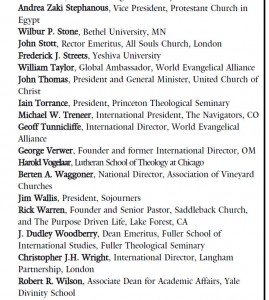 We most heartily agree. Abandoning all “hatred and strife”, we must engage in interfaith dialogue as those who seek each other’s good, for the one God unceasingly seeks our good. Indeed, together with you we believe that we need to move beyond “a polite ecumenical dialogue between selected religious leaders” and work diligently together to reshape relations between our communities and our nations so that they genuinely reflect our common love for God and for one another.
We most heartily agree. Abandoning all “hatred and strife”, we must engage in interfaith dialogue as those who seek each other’s good, for the one God unceasingly seeks our good. Indeed, together with you we believe that we need to move beyond “a polite ecumenical dialogue between selected religious leaders” and work diligently together to reshape relations between our communities and our nations so that they genuinely reflect our common love for God and for one another.
…The future of the world depends on our ability as Christians and Muslims to live together in peace. If we fail to make every effort to make peace and come together in harmony you correctly remind us that “our eternal souls” are at stake as well. We are persuaded that our next step should be for our leaders at every level to meet together and begin the earnest work of determining how God would have us fulfill the requirement that we love God and one another. It is with humility and hope that we receive your generous letter, and we commit ourselves to labor together in heart, soul, mind and strength for the objectives you so appropriately propose.
[The Christian letter pleads for interfaith dialogue that seeks the good of both Muslims and Christians. We are told that the stake of our eternal souls depend upon making peace between Christians and Muslims. Significantly the document does not mention that Christ came into the world to save sinners (1 Timothy 1.15).
The Bible teaches that eternal salvation depends on faith in Christ alone. ‘Neither is there salvation in any other: for there is none other name under heaven given among men, whereby we must be saved’ (Acts 4.12). Christ said, ‘I am the way… no man comes to the Father but by me’ (John 14.6).]
A heretical document
The Christian letter of response was a deeply heretical document, for it suggested that Islam and Christianity are equivalent religions that worship the same God. It said nothing about the divinity of Christ as the Second Person of the Godhead. It said nothing about Christ’s death on the Cross; that while we were still sinners Christ died for us, to bring us to God. It said nothing about the exclusiveness of the Christian faith––it did not declare to the Muslim world that it needed the Gospel of Christ; that there is no other salvation but in Christ alone, for there is no other name under heaven, given among men, whereby we must be saved (Acts 4.12).
Signatures to the Christian letter included Rev John Stott, Rector Emeritus, All Souls Church, London; Rev Christopher Wright, International Director, Langham Partnership, London; and Rick Warren, Senior Pastor Saddleback Church, CA.[3]
Stott’s name mentioned in Press Conference
In a press conference held on Monday, 26 November 2007, at the Cultural Foundation of Abu Dhabi, UAE, Muslims scholars met with renowned Evangelical theologian Dr. Miroslav Volf and thanked him and his colleagues for their support of A Common Word.
Dr. Miroslav Volf, Professor of Theology at Yale Divinity School and Director of the Yale Center for Faith and Culture, was instrumental in galvanizing Christian support for A Common Word and the publishing of a full-page advertisement in The New York Times (18 November 2007) called the Yale Statement. 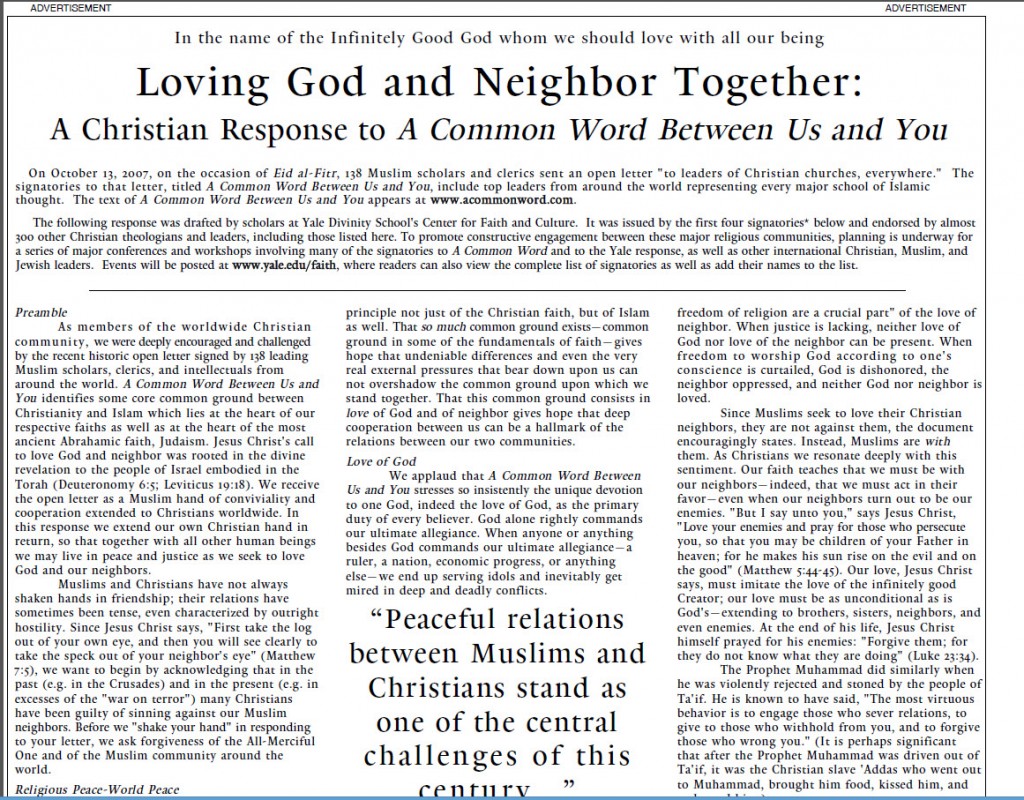 The advertisement featured a 300-strong list of endorsements from leading Christian figures from all over the world.
The advertisement featured a 300-strong list of endorsements from leading Christian figures from all over the world.
The press conference emphasised the point that number of prominent Evangelical leaders, such as John Stott and Rick Warren, had signed The Yale Statement. This remarkable display of Christian encouragement for the effort by the 138 Muslim scholars, and has helped pave the way for future theological engagement between representatives of both faith communities.
http://www.acommonword.com/300-christian-scholars-support-muslim-peace-message/
Hypocrisy of Stott’s position
It is highly significant that the press release publicizing A Common Word, referred to the Christian response endorsed by two great evangelical leaders, and refers to John Stott and Rick Warren by name. So the reputation of Stott is being used to endorse a heretical document. Surely Stott must have realised that by adding his name to the Christian response he would give the document credibility in the eyes of the evangelical world.
We must remember that John Stott is the man who together with Billy Graham,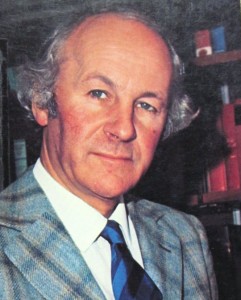 set up the Lausanne Movement for World Evangelisation in 1974, with the slogan—‘the whole church taking the whole gospel to the whole world’. Yet John Stott signed an open letter which says nothing about taking the gospel of Christ to the Muslim world.
set up the Lausanne Movement for World Evangelisation in 1974, with the slogan—‘the whole church taking the whole gospel to the whole world’. Yet John Stott signed an open letter which says nothing about taking the gospel of Christ to the Muslim world.
The fact that Stott signed this letter tells us much about his theology God––he actually affirmed in a public document that Christians and Muslims worship the same God. Note the hypocrisy of Stott’s position. To the evangelical world, he claims to believe in taking the whole gospel to the whole world. To the Muslim world he presents himself as a passionate supporter of interfaith dialogue. His assertion that the Lausanne Movement is for the evangelization of the whole world has a hollow ring, for he signed a document that seeks peace with Islam, yet says nothing about preaching the Gospel of Christ to Muslims.
[1] Website of ‘A Common Word between Us and You’, http://www.acommonword.com/
[2] New York Times, full page advertisement, ‘Loving God and Neighbor Together:
A Christian Response to A Common Word Between Us and You’, www.acommonword.com/
lib/downloads/fullpageadbold18.pdf Cached
[3] Ibid.
